Growing consumer awareness is changing the way sustainable materials and packaging are being used.
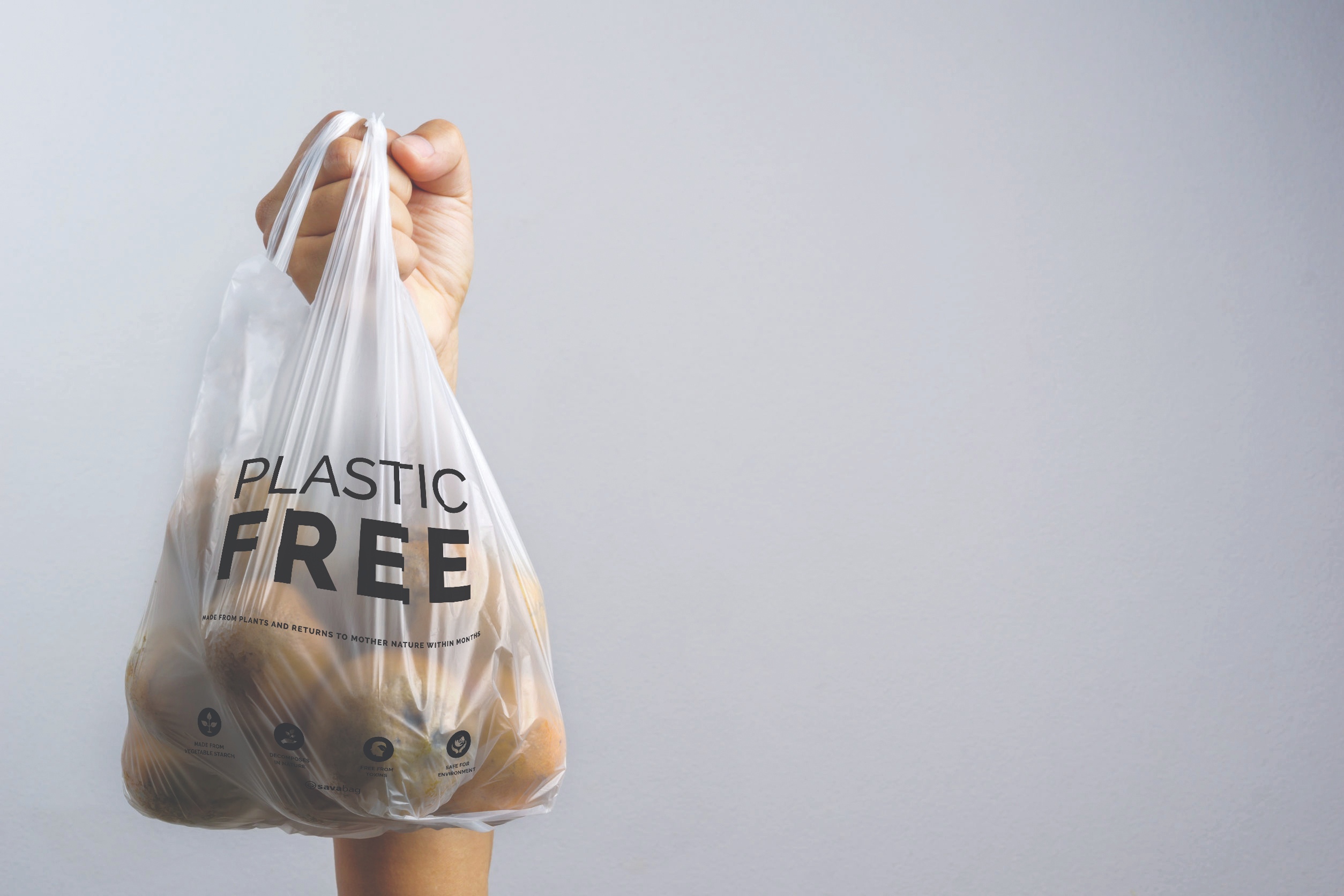
Recyclable; biodegradable; compostable. These words are often used on packaging that claim to be made from sustainable materials. But what does it really mean, and how does it impact our environment?
There is more to this than meets the eye. If there are no available consumer collection or composting facilities available that accepts compostable packaging, nothing changes for the better. The term “biodegradable” also misleads consumers into thinking that regardless of where a package is disposed, it will break down within a short period of time. And then there are various recyclable symbols being used, and we assume that a package will be recycled if we place it into the correct bin. But in truth, the question that we have to ask is “can this packaging be recycled in the country that I live in?”
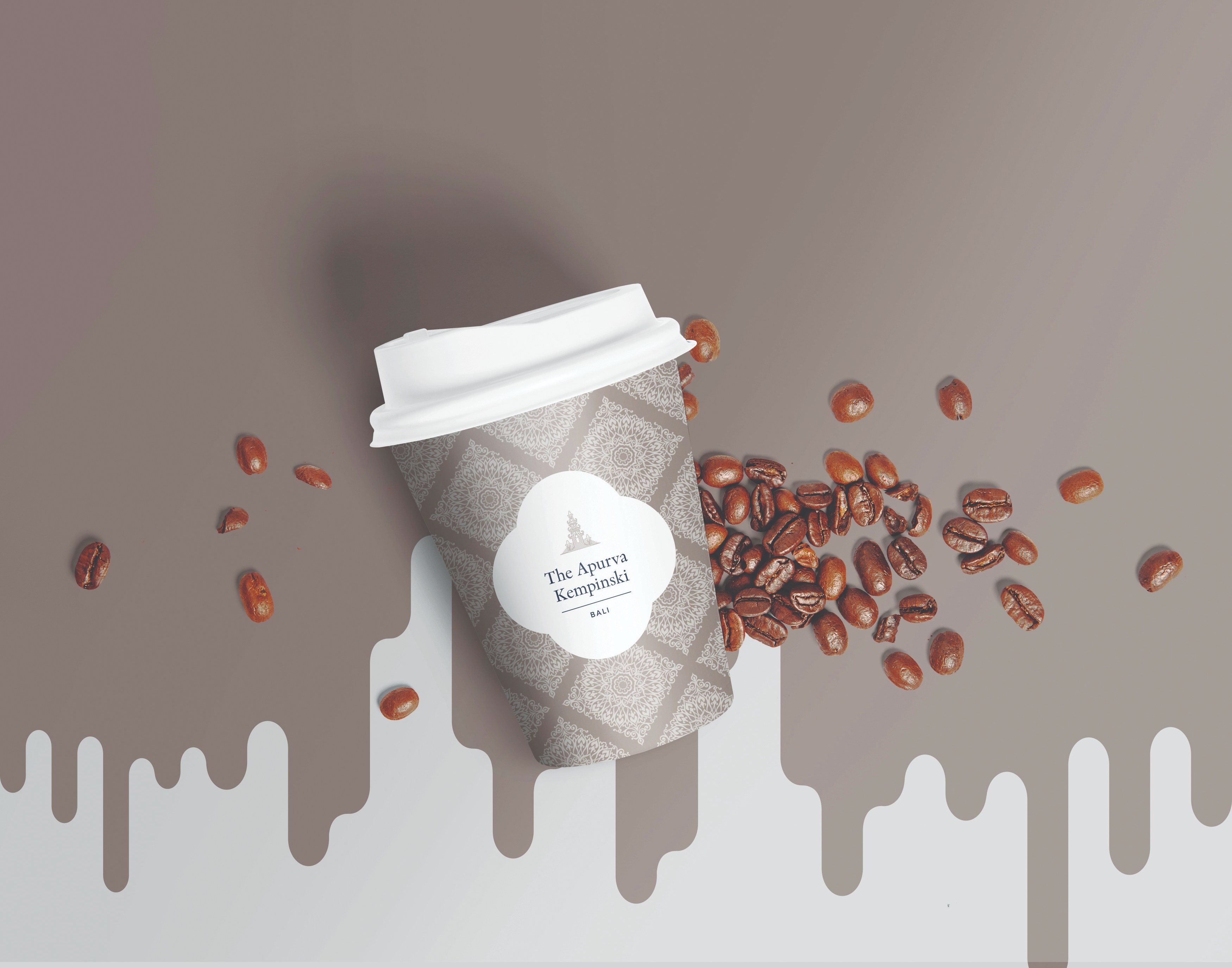
It becomes a matter of waste management, an issue that is causing global concern over plastic pollution. The quest for sustainable disposable food packaging products has driven the use of bioplastic containers. “Bioplastics are great as they’re usually made from sustainable materials but this doesn’t mean they’re easily renewable as the technology and waste management systems still don’t exist everywhere to assist with the degradation or recycling process. Therefore, our goal right now is to push towards a product range that is (almost entirely) paper-based and does not contain any bioplastic, let alone petroleum-based plastic. This will mean that all our products are not only home compostable but also easily recyclable in paper waste bins,” says Seyhan Azak, Managing Director of Affinity Supply Co, a supplier of sustainable plant-based products and packaging made in Indonesia.
Azak explains further on the issue of compostable materials, “Some compostable products on the market don’t have a means of composting in their region; will not degrade in the environment; and some are not even certified as food safe.”

With the current COVID-19 situation, consumer behaviour has changed, leading to more food deliveries and increased demand for takeaway containers. It is even more important during these times that the right sustainable containers are being used by restaurants. Azak shared that certain products are being adapted for home deliveries; for instance, eco-friendly lids for ice cream cups.
Concerns over food packaging materials have also arisen over COVID-19, and Tetra Pak, a global leader in food processing and packaging solutions, has conducted assessments on the safety and suitability of their products. “We can confirm that irrespective of the outbreak, our products remain safe for food production,” says Markus Pfanner, VP Sustainability, Tetra Pak.
One of the key sustainability concerns that Tetra Pak is addressing is the need to promote a circular economy, which includes eliminating waste and ensuring end-of-life use for packaged products. “As part of our journey towards fully renewable and recyclable packaging, we are continuously exploring nature-based alternatives, helping us shift from high-carbon materials to renewable and responsibly sourced ones,” shares Pfanner.

A typical Tetra Pak carton package comprises 70% paperboard, 25% plastic and 5% aluminium to protect the inside of the package. All these materials are fully recyclable when supported by a local collection infrastructure. Its Tetra Rex® Plant-based package is made with paperboard and sugarcane-based plastic. Most recently, Tetra Pak has become the first company in the food and beverage industry to responsibly source plant-based polymers using the Bonsucro standards for sustainable sugar cane. Bonsucro is a global non-profit organisation created to promote sustainable production, processing and trade of sugar cane in the whole world.
As the world continues to generate about 200 million tonnes of plastic waste annually, with Asia Pacific as the region with the highest plastic consumption, companies are realising the need to aggressively step up sustainable efforts. With increasing consumer awareness, companies are becoming more transparent in reflecting sustainability practices used in packaging, for instance, carbon footprint, end-of-life disposal, plastic-free, renewable material credentials, among other environmental stewardships. Certification by institutions such as Forest Stewardship Council, Plastic Free Trust Mark and Metal Recycles Forever are increasingly being reflected in product packaging. Environmental regulations such as the ban on single-use plastic or the Circular Economy Action Plan have also given much momentum to industry efforts.
There is more to Azul Beach Club Bali than stunning sunsets. The beachfront Tiki bar, restaurant and beach club has been supporting green design and sustainability from the ground-up. Proudly housed in locally-designed bamboo architecture, the open-air, two-storey, thatch-roofed structure exudes chic and understated ambience. The turquoise-coloured decor enhances its name in a vibrant shade of blue. But, most importantly, it aims to be sustainable.
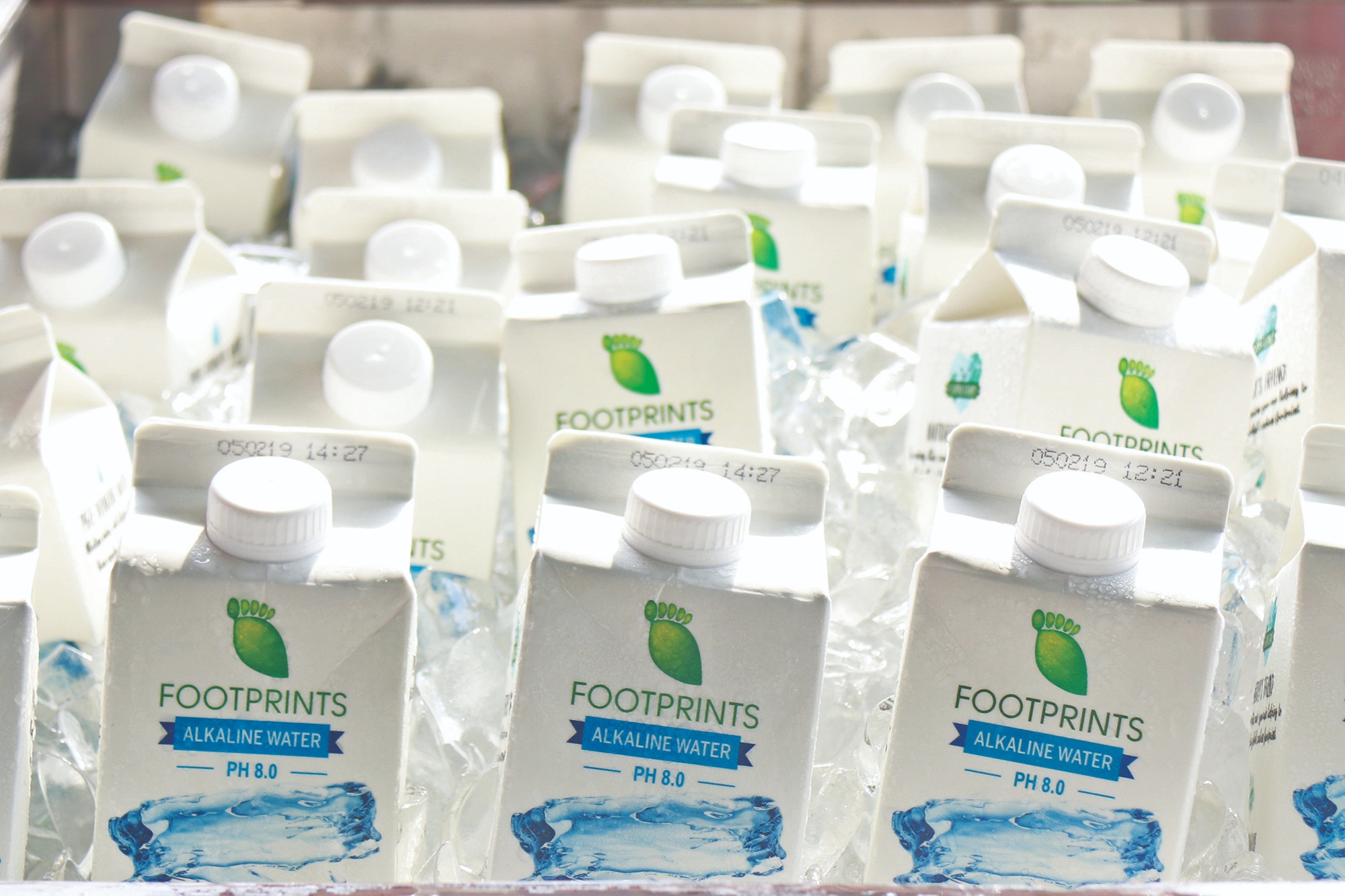
Although Bali officially bans the usage of single-use plastics (plastic bags, straws and polystyrene) in June 2019, Azul has committed to stop using plastic straws and packaging as far back as three years ago. One can sip Azul’s refreshing Tiki concoctions through a bio-degradable, plant-based eco straw without feeling guilty that it would end up in the landfill. In the kitchen, Executive Chef Sugeng Sulistyono and his team also prioritise fresh and locally sourced produce for its Asian-inspired menu. “Our vegetables are sourced from farms in Bedugul and Plaga. For seafood, our supplier from Jimbaran delivers fresh catch supplies from fishermen. If we have scraps, we make sure they are not going to waste by using them in stocks,” explains the chef.
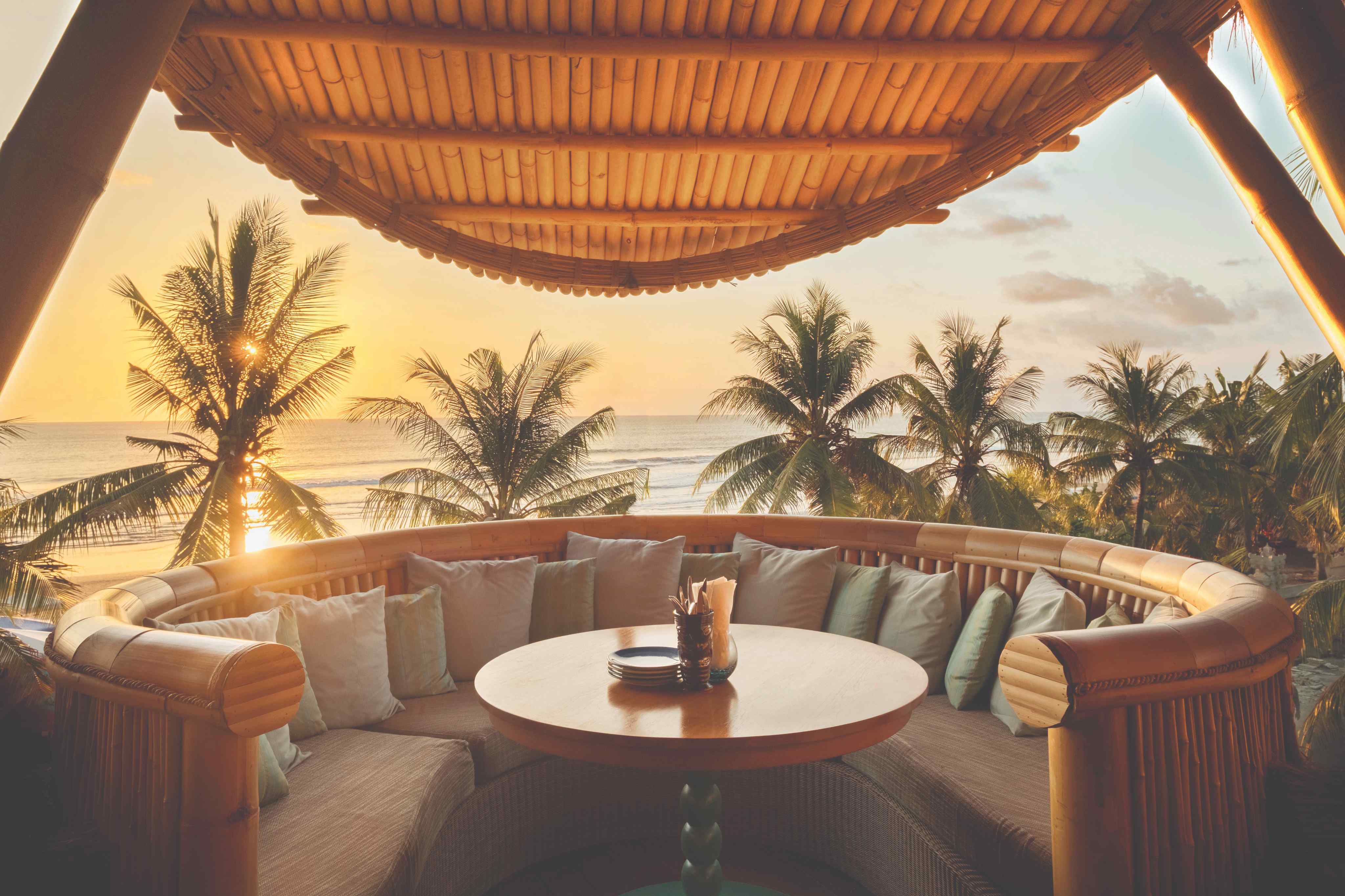
The same attention for responsible sourcing is observed at Hyatt Regency Bali. The beachfront resort works with Bali Sustainable Seafood, a purveyor of high-quality seafood. The company works closely with small-scale fishing communities in Bali and beyond, supplying seafood produce which are wild-caught and harvested using sustainable fishing methods. “Eighty percent of our menu is locally sourced. On top of that, we also implement strict non-plastic packaging in our kitchen,” explains the resort’s Executive Chef Nadine Waechter-Moreno.
At Pizzaria, the resort’s popular alfresco Italian restaurant, one can find tasty Butter Garlic Prawn, served with house made sourdough bread and Linguine, cooked with a generous serving of clam, calamari and prawn. The resort is actively working with local food producers and artisans to support the local community and to minimise carbon footprint. The attempt to use less plastics in packaging can also be found in the rooms. Guests would find drinking water glass bottles, refillable dispensers, bamboo toothbrush, and paper-packaged amenities in the bathroom.
Meanwhile, Singapore’s two luxurious properties’ commendable commitment to environmental mindfulness are exemplary. In line with Hilton’s global corporate responsibility strategy, Hilton Singapore has become the first hotel in Asia to achieve certifications from Marine Stewardship Council (MSC) and Aquaculture Stewardship Council (ASC) Chain of Custody for its seafood produce’s sustainable sourcing. By ordering from the in-room dining menu or enjoying a serving of Seared MSC Atlantic Scallops with butternut squash puree, pumpkin seeds and basil at Opus Bar & Grill, one can be certain that the seafood produce are either sustainably caught or farmed.
The resort also went so far as to build an on-site vertical garden next to Opus Bar & Grill, constructed as two sets of three-metre-tall, hydraulic-driven vertical stands that are bursting with herbs and vegetables. Using a closed-loop water irrigation system, it is managed by the culinary team who know exactly what is needed to supplement their menu.
“It is important that chefs continue to advocate the importance of protecting the ocean and its marine inhabitants through sustainable sourcing. At Opus, 33 percent of our seafood is eco-labelled and together with our purchasing team, we are constantly on the lookout for sustainably sourced products as soon as they become applicable and available in the local market,” explains executive chef Shannon Batten.
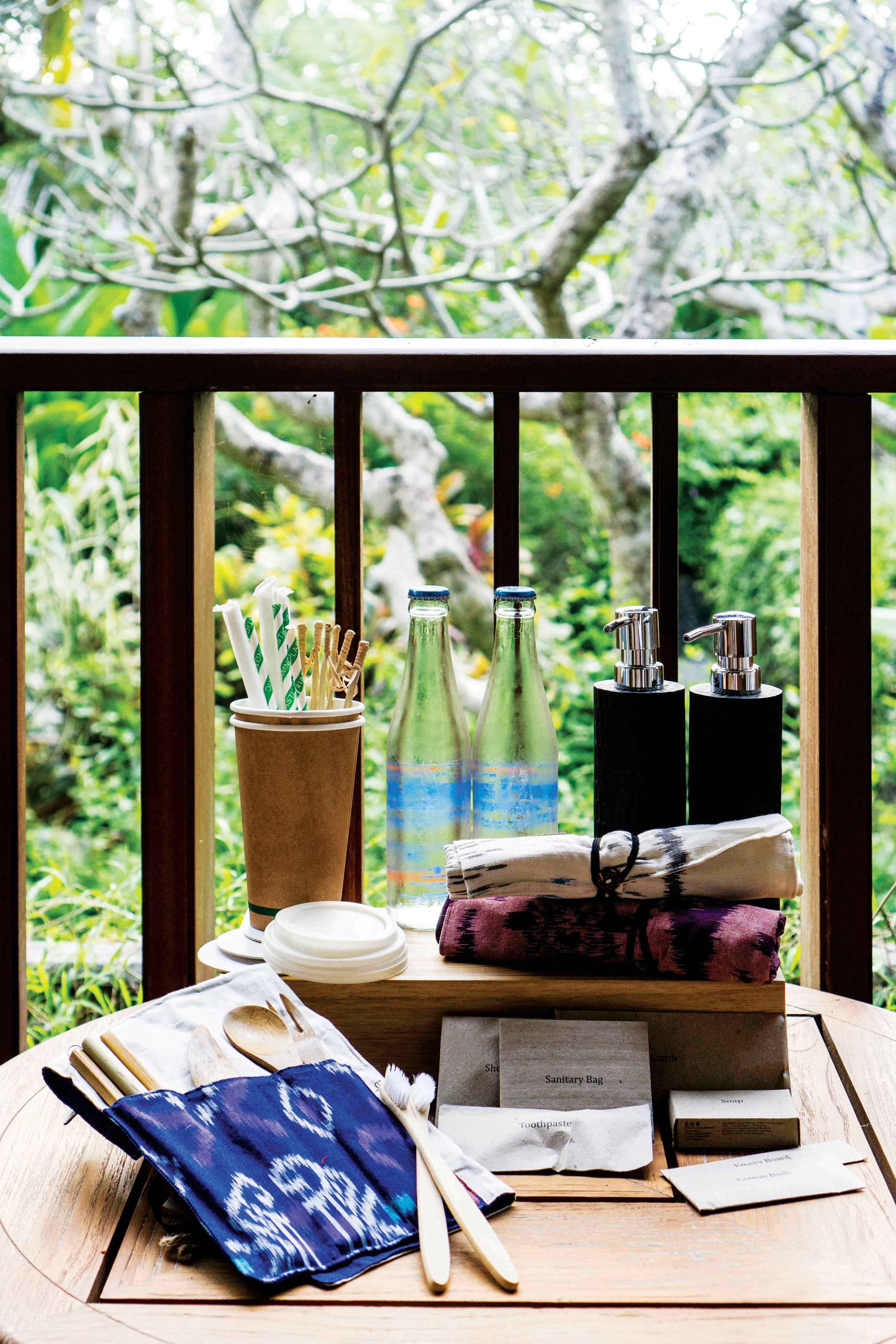
Marine conservation and responsible sourcing are also what drives Chef Marvas Huang in his menu creation. As the chef de cuisine of Ocean Restarurant at Resorts World Sentosa, he consulted with the resort’s Sustainability Committee to create a list of top sustainable ingredients for the menu. Zooming in on artisanal and environmentally responsible fisheries and farms, he managed to create outstanding dishes for the restaurant such as the Drunken “Yumbah” Abalone from Australia with Shao Xing, Wolfberries and Organic Vegetables. “Every seafood item on the menu is sustainably sourced. Be it the MSC-certified Norwegian pink shrimps and Hokkaido’s diver scallops, every item is carefully selected only after we have reviewed their farming, fishing and catching methods as well as their environmental impact,” explains the chef.
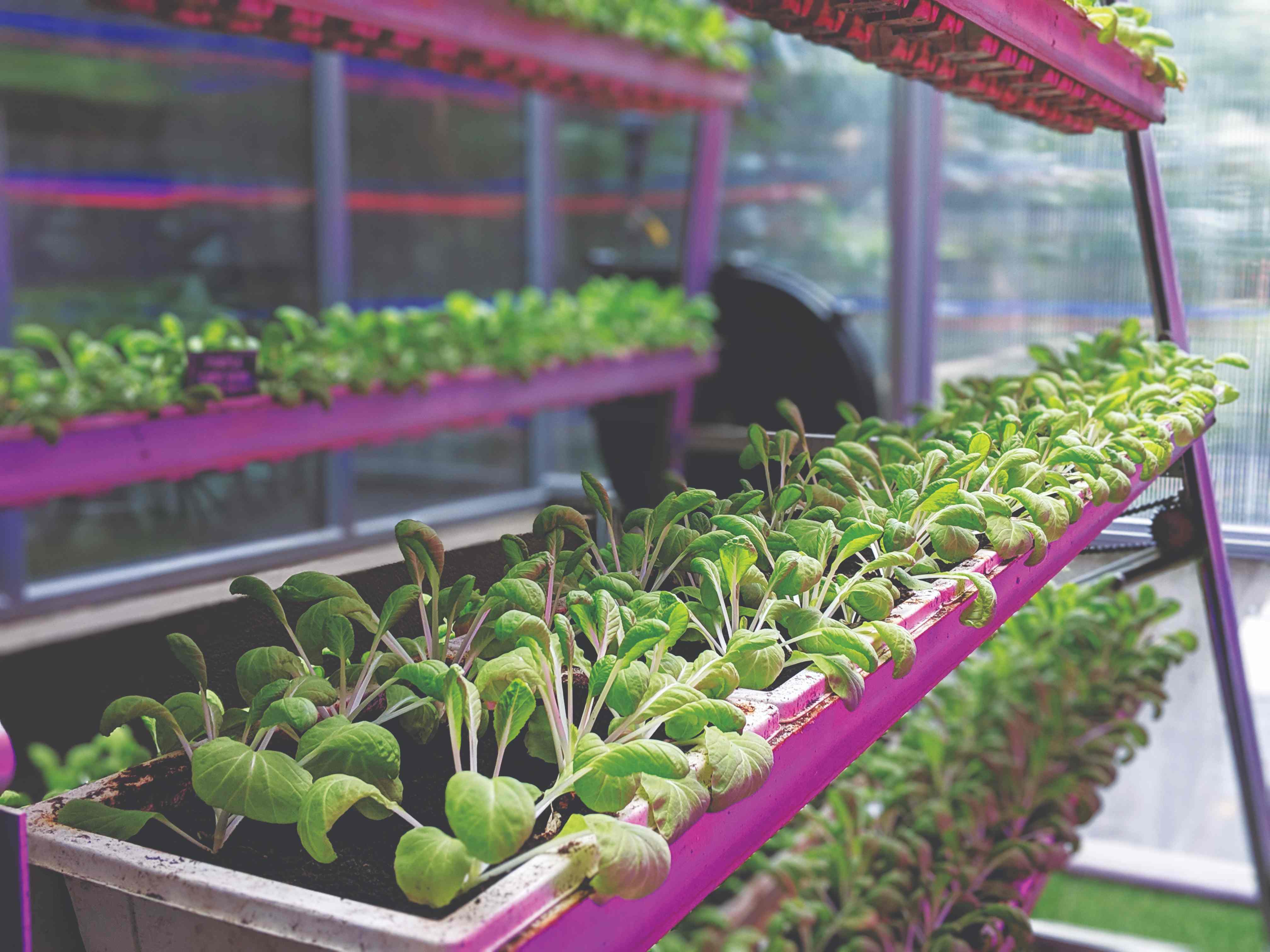
Commitment to the environment can also be seen in the resort. Since 2018, the resort has stopped providing plastic straws across its attractions and dining establishments. A gradual phasing out of single-use plastic bottles started in 2019. Now, the resort only uses paper straws when requested by guests. On each floor of Festive Hotel, guests would find newly-installed water stations to refill their provided glass carafes. If one is concerned about the rising usage of takeaway packaging, Malaysian Food Street is trying to provide a solution. As one of the dining outlets at Resorts World Sentosa, it is now offering takeaway and delivery services served in biodegradable disposables in an on-going attempt to eliminate non-recyclable single-use packaging.